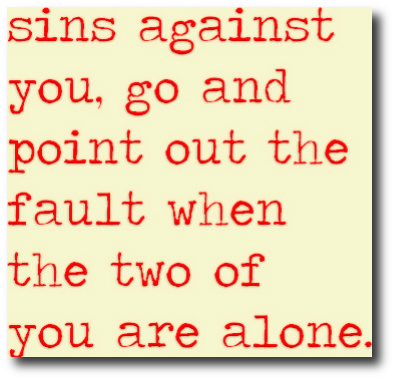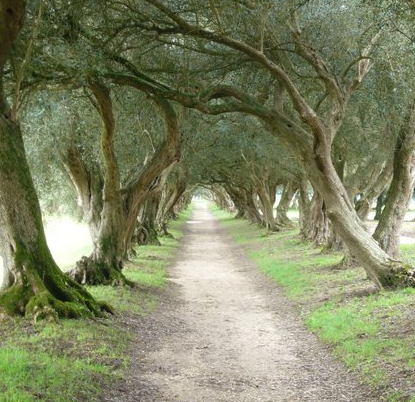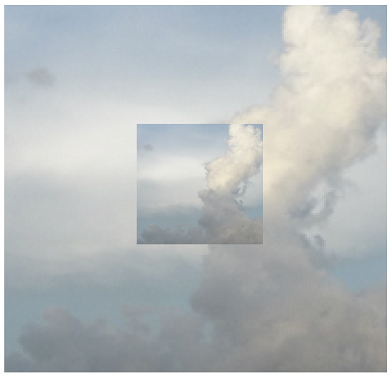A Temple in the Streets
“You ride into town on a donkey, and you allow the crowds to greet you as king. You enter the temple and you drive out all who are buying and selling there. You overturn the tables of the money changers. You allow the blind and the lame to come to you in the temple, and you cure them. The children sing to you, Hosanna to the Son of David, and you do not stop them. Just who do you think you are?”[1]
The temple authorities were not just curious, they were angry and they demanded answers. “What kind of authority do you have for doing these things? Who gave you this authority?” Where did you go to school? What is your degree? When and where were you ordained? Do you have letters, certificates, diplomas?
The temple authorities lived in a very orderly world where authority was hard-earned and carefully assigned. You study hard, you finish top of your class, you get the right internships, you network in the outer courtyards to find a way into the inner circle, you make sure the people in charge remember your name.
It is easy to see how these seasoned temple leaders were disturbed and shaken by Jesus’ freedom. His words and actions went against all that was holy to them. And his words and actions undermined their power: Forgiveness of sins was temple business, yet Jesus forgave sins on the street.

They asked Jesus, but only they themselves could answer these questions, just like you and I trust the word and witness of others only to the point where we ourselves know the authority of Jesus. It’s a matter of seeing. We know his authority because it grabs us, it changes us, it puts us on a different path. We give the answer when the question isn’t a question anymore, and we give it with your lives.
Jesus didn’t give them an answer, because he gave it with his life as well. Instead he asked them a question, “Where did John get his authority to baptize? Did he get it from heaven or from humans?” They remembered John, who called people to repentance, and who baptized those who confessed their sins. They remembered him: he had called them a brood of vipers – not a phrase they could forget easily. John challenged them along with all the sinners gathered at the river’s edge to produce fruit that showed that they had changed their hearts and lives.[3]
Now Jesus asked them whether John’s authority came from heaven or from humans. What were they to say? They didn’t discuss if John was a prophet from God or just a crazy wild man, but they showed great concern for the political implications of their response. “If we say ‘from heaven,’ he’ll say to us, ‘Then why didn’t you believe him?’ But we can’t say ‘from humans’ because everyone thinks John was a prophet.” The safest thing to do was to plead ignorance. “We don’t know,” they replied. The entire conversation wasn’t shaped by a desire to know the truth, but by political considerations. Power was at stake, and these men were not free to respond to John or Jesus, because they were trapped in positions of privilege. An honest answer, either way, would have threatened those positions.
The way Matthew paints the scene makes it very easy for us, too easy, I believe, to stand in the courtyard and chide the religious authorities for their failure to respond with honesty. It doesn’t take great courage to demand honesty when others are the ones faced with the question. But if we’re honest – and I can only speak from my own experience, but I suspect I’m not alone – if we’re honest, we must admit that our own response to Jesus is determined by considerations of power and privilege, all the time: calling Jesus my Lord and Savior involves letting go of habits of thinking, speaking, and doing that are quite comfortable. And when I’m not ready to let go, I’m as good as the first of the chief priests at pleading ignorance.
I hear the little story of the two sons with great humility. A man had two sons. Now he came to the first and said, “Son, go and work in the vineyard today.” “No, I don’t want to,” he replied. But later he changed his mind and went. The father said the same thing to the other son, who replied, “Yes, sir.” But he didn’t go. Which one of these two did his father’s will?
Yet another question, and this time the temple leaders didn’t huddle to discuss their answer. “The first one,” they said. It was a good answer. What we say matters, but not as much as what we do. Actions speak louder than words. Well done is better than well said. It was a good answer, but it was also a word of judgment. Jesus draws our attention to the actions of notorious sinners, people who never claimed to do God’s will: When John came, they trusted his word that repentance was the gate to the kingdom. Tax collectors and prostitues changed their hearts and lives, and they are entering God’s kingdom ahead of you. Those who were blind are able to see. Those who were crippled are walking. Those who were deaf now hear. Those who were dead are raised up. The poor have good news proclaimed to them. [4] And all you do is ask, ‘Who gave you this authority?’ What does it take for you to see the grace of heaven at work on earth? What does it take for you to join the company of sinners in the embrace of God’s mercy? Are you so proud? Are you so proud?
In The Brothers Karamazov, Dostoevsky writes about the “lady of little faith.” She is an old woman who has doubts about her destiny in the face of death, and she seeks spiritual advise from Father Zosima.[5]
He tells her, “Strive to love your neighbor actively and indefatigably. In as far as you advance in love you will grow surer of the reality of God and of the immortality of your soul. If you attain to perfect self-forgetfulness in the love of your neighbor, … no doubt can possibly enter your soul. This has been tried. This is certain.”
“In active love?” she replies. “There’s another question—and such a question! You see, I so love humanity that … I often dream of forsaking all that I have, leaving [my family], and becoming a sister of mercy. I close my eyes and think and dream, and at that moment I feel full of strength to overcome all obstacles.”
She wants to say ‘yes’ with her whole heart, but then she wonders how long she could endure such a way of life. What if the patient whose wounds she would so lovingly and selflessly be tending, what if that patient should fail to respond with gratitude? “If anything could dissipate my love to humanity, it would be ingratitude,” she says.
Then the priest tells her what a doctor once told him.
“He was a man getting on in years, and … spoke as frankly as you, though in jest, in bitter jest. ‘I love humanity,’ he said, ‘but I wonder at myself. The more I love humanity in general, the less I love man in particular. In my dreams,’ he said, ‘I have often come to making enthusiastic schemes for the service of humanity, and perhaps I might actually have faced crucifixion if it had been suddenly necessary; and yet I am incapable of living in the same room with any one for two days together, as I know by experience. As soon as any one is near me, his personality disturbs my self-complacency and restricts my freedom. In twenty-four hours I begin to hate the best of men: one because he’s too long over his dinner; another because he has a cold and keeps on blowing his nose. … The more I detest men individually the more ardent becomes my love for humanity.’ ”
“But what’s to be done?” the woman asks. “What can one do in such a case? Must one despair?”
“No,” the priest replies. “It is enough that you are distressed at it. Do what you can, and it will be reckoned unto you. … If you do not attain happiness, always remember that you are on the right road, and try not to leave it. Above all, avoid falsehood, every kind of falsehood, especially falseness to yourself. Watch over your own deceitfulness and look into it every hour, every minute. … What seems to you bad within you will grow purer from the very fact of your observing it in yourself. … Never be frightened at your own faint-heartedness in attaining love … I am sorry I can say nothing more consoling to you, for love in action is a harsh and dreadful thing compared with love in dreams. Love in dreams is greedy for immediate action, rapidly performed and in the sight of all ... But active love is labor and fortitude.”
The love of God which encounters and invites us in Jesus is not a love in dreams. It is a love that reveals its depth in the long labor of our redemption.
In the life of Jesus, word and action become one to build a temple in the streets. He calls us to change our hearts and lives and to join the company of sinners in the embrace of God’s mercy. He calls us to let go of our pride and recognize one another as brothers and sisters in our need for forgiveness. He calls us to join him in the dailiness of love’s labor, which is our priestly service. He calls us to give the answer with our lives.
[1] See Matthew 21
[2] See Matthew 9:2-8
[3] Matthew 3:1-12
[4] See Matthew 11:5
[5] http://www.gutenberg.org/catalog/world/readfile?fk_files=1073265&pageno=37















